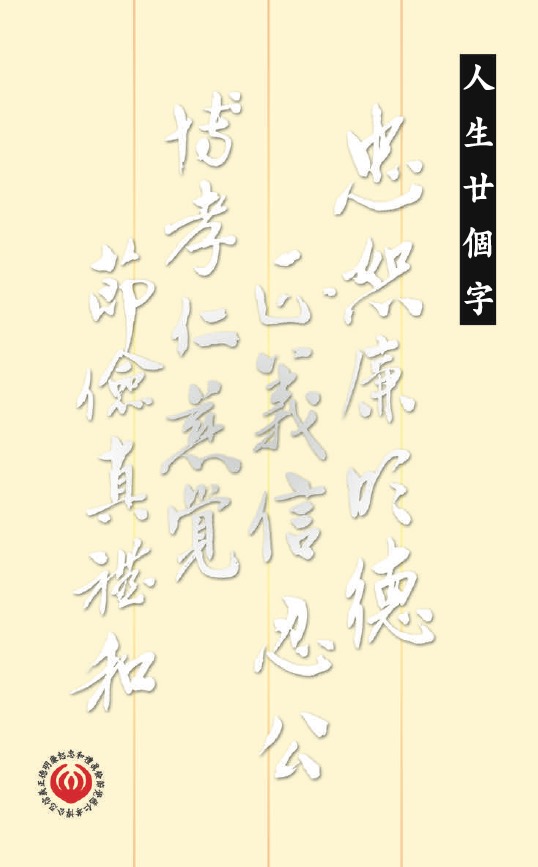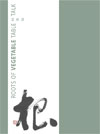Righteousness ﹣ 義箴
- 義箴
- YI (Righteousness)
| 取予是非 | 惟義是踐 | 財毋茍得 | 難毋茍免 |
| 事行不行 | 言知不知 | 榮辱休問 | 順理則宜 |
取予是非 惟義是踐 平日取人之物,或與人之物,以及辨別事理之是與不是,獨本於義字實行。
O 踐,實行也。
財毋茍得 難毋茍免 當其財來之時,不合乎義,決不苟且取得;當其難來之時,如合乎義,決不苟且求免。
O (禮)「臨財毋茍得, 臨難毋茍免。」O難,去聲。
事行不行 言知不知 事合乎義,不管行與不行,勇往前進。言不背義,不管知與不知,誠懇 說出。
榮辱休問 順理則宜 即因此受榮受辱,在所不問。指圖言行合乎事理之宜,求其心安而已。
Let us decide our course of action according to the character YI (righteousness). Do not accept wealth when it goes against your pillar of righteousness to accept it. Do not eschew difficulties when it goes against your righteousness to eschew them. If something is wise or unwise for us to do or say, provided that it is in accordance with righteousness, we should muster up our courage and do it or say it. Do not question what the consequences would be, but rather, ask whether the act is in accordance with righteousness or the truth.

